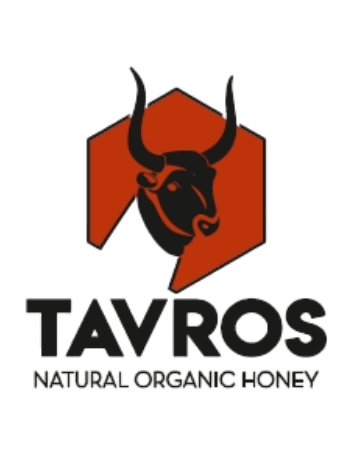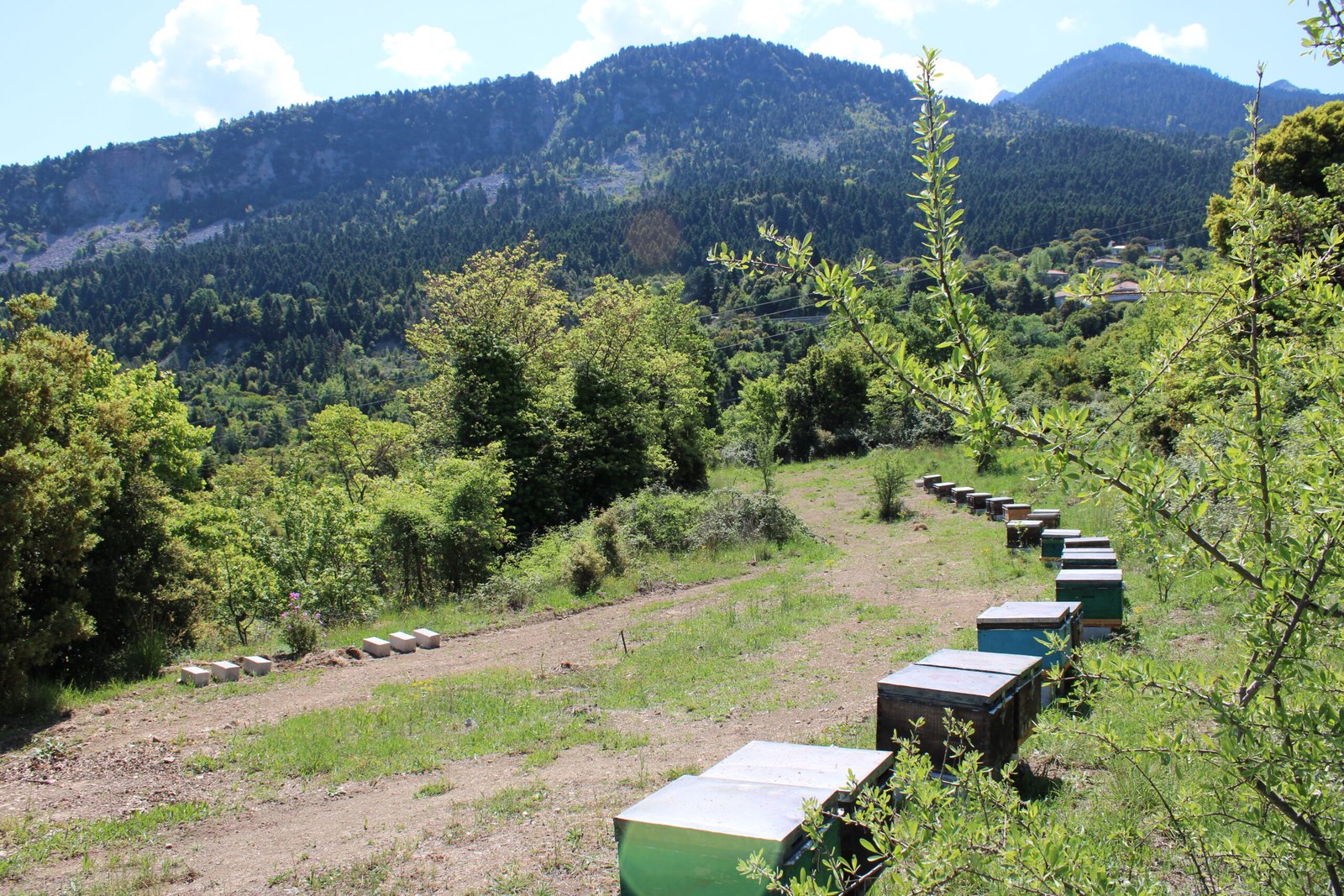
TAVROS Natural Organic Honey is a Greek family-run beekeeping business that focuses on collecting, packaging, and distributing high-quality organic honey.
The founder and main beekeeper is Giorgos Bokas, who transitioned from a career as a pilot in the Greek Armed Forces and later in Civil Aviation. However, it was his role as a network manager for a major Greek food retail chain that truly inspired him to start a beekeeping company dedicated to producing premium-quality honey with the utmost respect for bees and the environment.
This experience awakened childhood memories of the countryside, with its intoxicating smells of spring and summer blossoms, pollen, honey, wood, and wet earth. He decided to fully dedicate himself to beekeeping, undergoing extensive training and studies with meticulous planning.
In July 2014, he established his first apiary, which was soon certified as organic, adhering to strict international standards for certified organic beekeeping. The effort was validated in 2021 when the company’s “Wild Forest” honey won the first gold medal at the BIOLMIEL international competition, an event exclusively for certified organic honey.
Giorgos’s daughter, Vasiliki-Ioanna, has been a key supporter in this endeavor. A graduate of the National and Kapodistrian University of Athens with a PhD in Pharmacognosy and Natural Products Chemistry, she shares her father’s passion for beekeeping. Her role is dedicated to the scientific aspects of the company’s operations.
An additional member, Tasos, Vasiliki-Ioanna’s husband, has also joined the company. Besides assisting with beekeeping duties, he uses his experience in sales to contribute in that area.
The company now operates three apiaries, producing various types of honey. The high quality of their honey is confirmed by excellent chemical analyses and multiple international awards.
The fine organic honey is collected from the unique flora of Aetolia, the Ionian Islands, and broader Central Greece, all within the Natura 2000 network and far from populated areas.
Due to the rich biodiversity of the flora, the natural coexistence of trees, a multitude of wild flowers, and rare aromatic plants and herbs, combined with the region’s unique climatic conditions and long hours of sunshine, the organic honey collected by TAVROS is considered to be among the best in the world.
Immediately after collection, the honey is carefully filtered and stored in suitable containers.
- Our honey mainly originates in mountainous areas, away from cultivations.
- Minimum amount of smoke usage.
- Harvest takes place only after the honey has completely matured.
- Zero heat treatment.
- Long clarification in tanks for plenty of days prior to storage.
- Packaging without heat treatment distortion, under the conditions of ISO 22000.
Our honey is product of a Single crop!
Its specificness and uniqueness is the reason for its limited production.
Selection of unique virgin areas for the honey collection, within the NATURA 2000 network, as well as completely natural processing!
After harvesting, the honey is carefully filtered and stored directly into suitable containers. It is packaged without being distorted by heat treatment, under the conditions of ISO 22000.

The aim of TAVROS
The aim of TAVROS is to supply completely organic and natural, unadulterated and pure honey, just as nature and bees provide us.
The scientific and fully technically handling of bees’ swarm, the selection of unique virgin areas for the honey collection, within the NATURA 2000 network, as well as the completely natural processing of the products, guarantee over time high quality and reliability.
THE LOGO
Aristaeus and the Bees
Aristaeus was the son of Apollo and Cyrene, daughter of the king of the Lapiths, Hypseus.
One day, while Cyrene was tending her father’s flocks on Mount Pelion, a lion attacked her.
Though unarmed, Cyrene managed to strangle the lion.
Apollo witnessed her struggle with the beast and fell in love with her.
He abducted her and took her to Libya, where the nymph Libya hosted the couple in her palace.
Apollo and Cyrene gave birth to Aristaeus. Then Hermes carried the child to the Horae and Gaia, who anointed his lips with nectar and ambrosia, thus making him immortal.
When Aristaeus grew up, the Nine Muses taught him the arts of prophecy and medicine, while the Spring Nymphs taught him the cultivation of vines and olives and the art of cheesemaking.
The nymph Melissa taught him how to practice beekeeping.
And when everything had been perfected, the Muses assigned Aristaeus the task of tending their flocks in Phthia. They also gave him the mission of passing on the knowledge of these arts to humans.
At one point, the inhabitants of the Cyclades, desperate due to a terrible epidemic, sought help from Aristaeus, following an oracle from Delphi.
He agreed to help them on the condition that he be allowed to settle on the island of Ceos (Kea).
The islanders accepted.
After Aristaeus made sacrifices to Sirius and to Zeus Ikmaios, the god of dew, the meltemia winds began to blow for forty days, cleansing the polluted air.
Ever since, the meltemia blow each year during the same period, cooling the Cyclades with their beneficial breeze.
Beyond the Cyclades, Aristaeus also went to Arcadia to teach beekeeping, wool-working, and the art of hunting.
But in Arcadia, he happened upon Eurydice, the wife of Orpheus, and dazzled by her beauty, tried to take her by force.
Eurydice—faithful to Orpheus—fled.
While escaping through the mountains of Arcadia, she was bitten by a snake and died.
Because of this tragic event, honey nearly disappeared forever, as shortly after, Aristaeus found all his bees dead.
Desperate, he sought help from his mother, Cyrene, who advised him to find Proteus—the shape-shifter who could take any form he desired.
Eventually, Aristaeus met Proteus, and the all-knowing old man revealed that the Napaean Nymphs, childhood friends of Eurydice, were the ones who had destroyed his bees.
Aristaeus captured Proteus and forced him to reveal how he could restore his bees.
Thus, he learned that in order to appease the wrath of the Napaean Nymphs and regain his bees, he had to sacrifice four carefully chosen bulls and four cows, leaving their carcasses in a shady spot.
He did as instructed.
Then, from those carcasses, bees were born again.
Bees that, born from the bull, became—and remain to this day—the most important insect on Earth, precious to Nature and to humanity.


